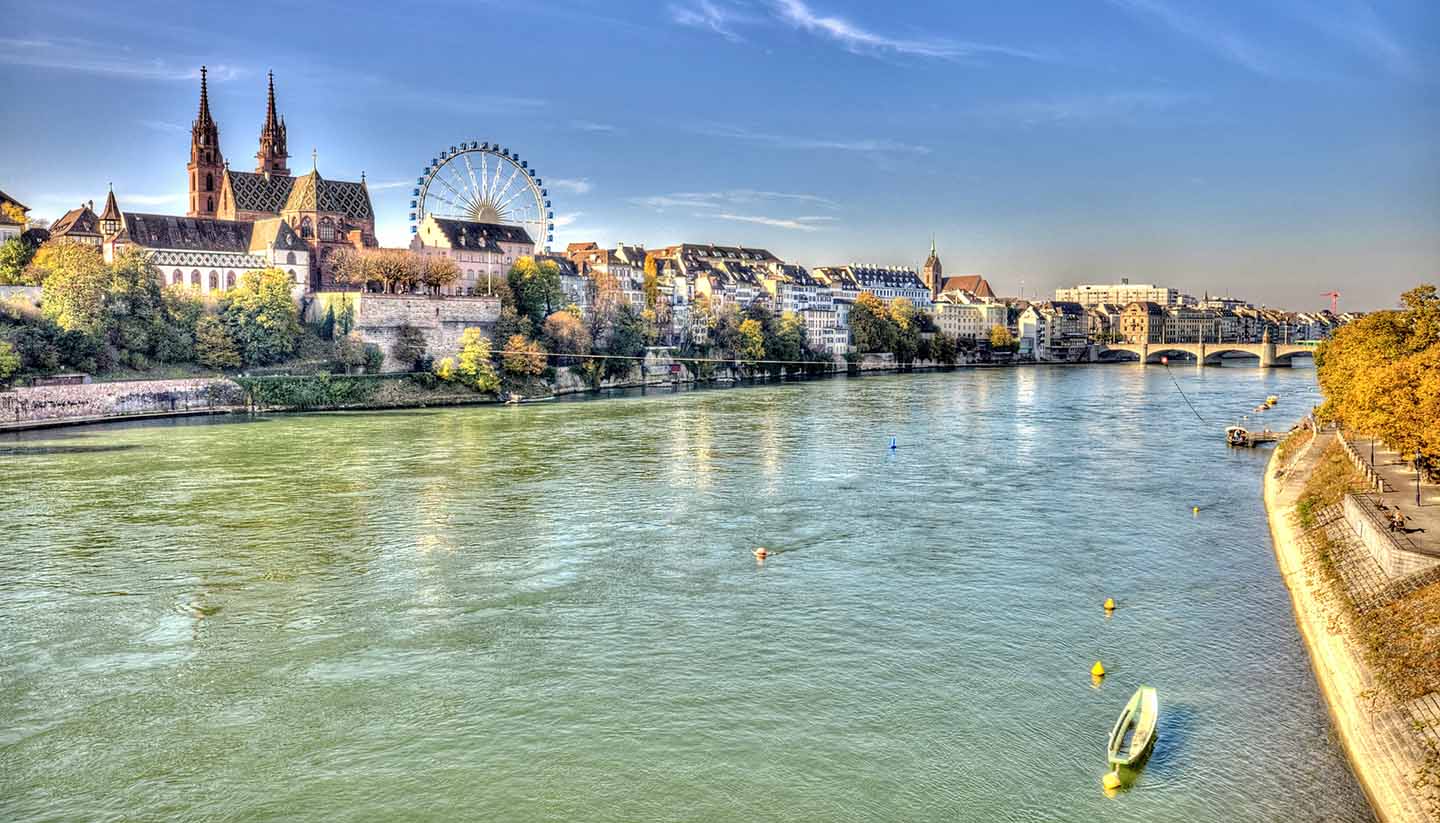Basel History
Basel started life as a Celtic settlement, with the Romans following hot on their heels. Their Basel was known as Augusta Raurica, with building commencing in 44BC, just upstream from today’s city centre, near to the Basel Minister.
By 374AD, the city had become known as Basilia, an important trading hub which got its own bishopric in the 7th century. But it wasn’t all smooth sailing for the young city, with its first outside attack coming in 917 courtesy of the Hungarians. Still licking their wounds, the citizens erected a city wall to keep future invaders away, although it would be badly damaged when a blaze ripped through the city in 1185.
The 1300s weren’t much kinder: an earthquake destroyed much of the city and the Black Death, which swooped across Europe, took thousands of lives. Townsfolk, living in terror and horrified by the seemingly unending deaths, turned on their Jewish neighbours, accusing them of poisoning the wells. In January 1349, 600 Jews were rounded up, tied together and burnt alive in an island hut in the middle of the River Rhine.
Despite being decimated by the Black Death, the city bounced back in its wake, establishing itself as a centre for the fledgling print industry. In 1488, the Schwabe publishing house opened and is still printing books today, while the success of the printer Johann Froben helped make the city the epicentre of the country’s book trade.
The opening of Basel University in 1460 attracted some of the world’s greatest thinkers. Theologian Desiderius Erasmus and philosophers Friedrich Nietzsche and Carl Jung are all among its alumni. Following the Swabian War of 1499, Basel was asked to become the eleventh canton of the Swiss Confederation, joining in 1501.
Not long after, the city joined the rest of Switzerland in becoming Protestant, swiftly establishing itself as a haven for co-religionists fleeing persecution elsewhere. Left untouched by the Napoleonic Wars, Basel also benefited from Swiss neutrality during both World Wars. Today, it remains a hub for literature – and possesses some of the most well-preserved mediaeval buildings in Europe.
Did you know?
• De humani corporis fabrica, the first book ever written on human anatomy, was published in Basel in 1543.
• In 1471 the city of Basel found a chicken, passing for a rooster, guilty of laying a egg ‘in defiance of natural law.’ It was burnt at the stake.
• Psychedelic drug LSD was invented in Basel by Swiss chemist Albert Hofmann in 1938.



